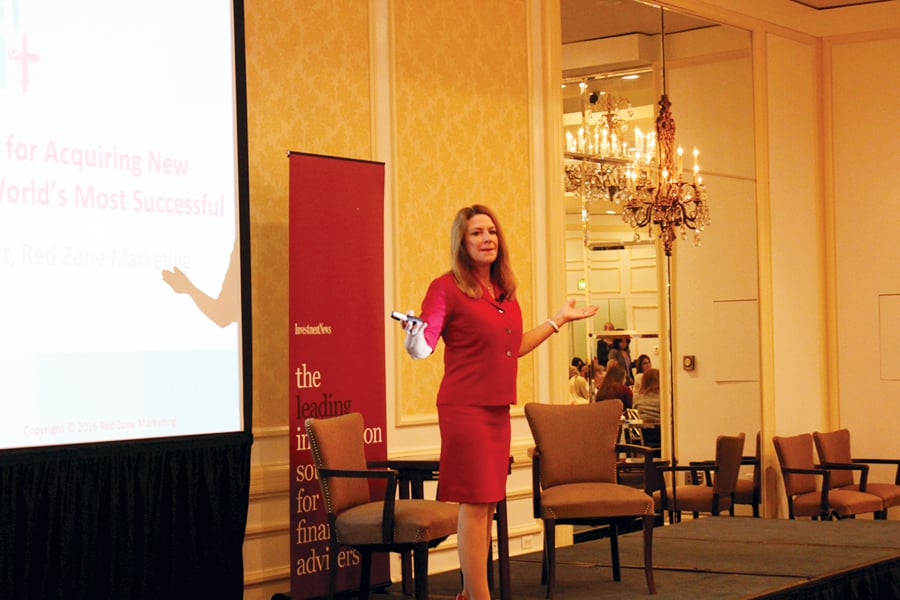New prospects are attracted by the relationship they develop with an adviser, rather than being persuaded by an adviser's efforts to portray themselves as the best in the market.
“Nobody believes 'better.' They don't buy it,” Maribeth Kuzmeski, president of Red Zone Marketing, said at the
InvestmentNews Women Adviser Summit in Boston on Tuesday.
People sign up with advisers “because of how they feel about you,” she said.
In fact, some financial advisers can draw in more clients by being like a favorite grandmother, Ms. Kuzmeski said.
She told the audience to imagine the best relationship they've ever had in their lives. For Ms. Kuzmeski, it was her grandmother, who doted on her as her first grandchild and instilled in her a love of the Green Bay Packers.
Thinking about her late grandmother still gives Ms. Kuzmeski “goosebumps,” she said, because of the time and attention she always devoted to her granddaughter.
She said advisers should try to develop a similar kind of trusted relationship with their clients.
Simply telling prospective clients that they need financial advice in order to secure their future won't clinch the deal, according to Ms. Kuzmeski.
“We don't buy what we need,” she said. “If we market on what [clients] want, not what they need, we'll be in a much better position.”
The best way for advisers to get the attention of potential clients in a world where everyone is increasingly distracted is by coming up with a “simple, repeatable statement of value,” Ms. Kuzmeski said. It should show why they are unique and why that's good for the client.
She gave an example of an adviser who had a sharper elevator pitch than just reciting who he is and what he does. He would tell people: “I create millionaires.”
A value statement also should be the first paragraph of a LinkedIn summary, Ms. Kuzmeski said. It should provide a window into the background of the adviser and explain why he or she is in the advice business.
“It's your story that makes you the most memorable,” she said.
In addition to talking about themselves in a more compelling way, advisers also need to listen actively to their clients. They can start by asking “big questions,” Ms. Kuzmeski said.
For an adviser talking to a prospective client who wants to change advisers, it may be: What is the one thing you wanted your current adviser to do?
Another good conversation starter: What is your biggest challenge?
“Get others to pay attention to you by the way you pay attention to them,” Ms. Kuzmeski said.







